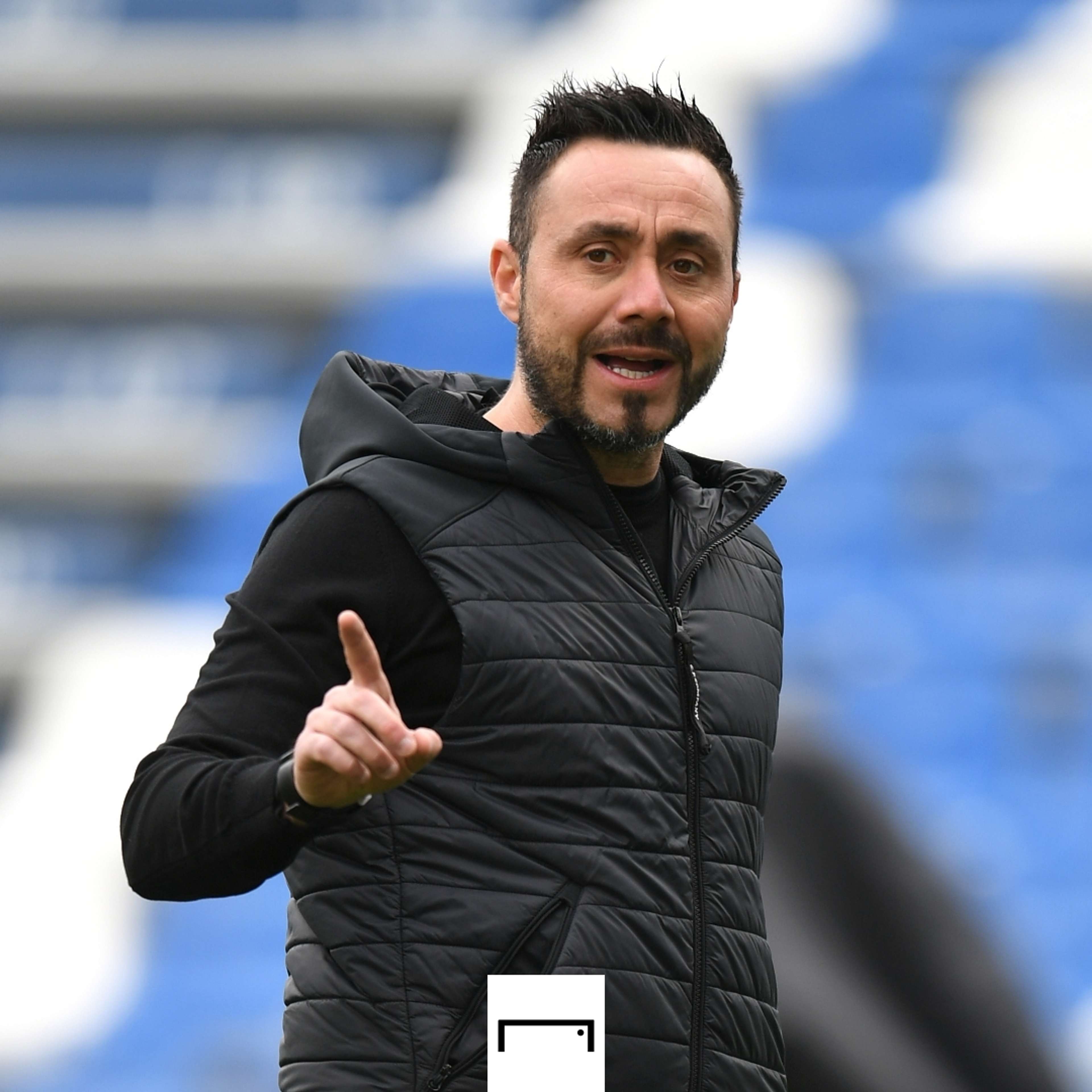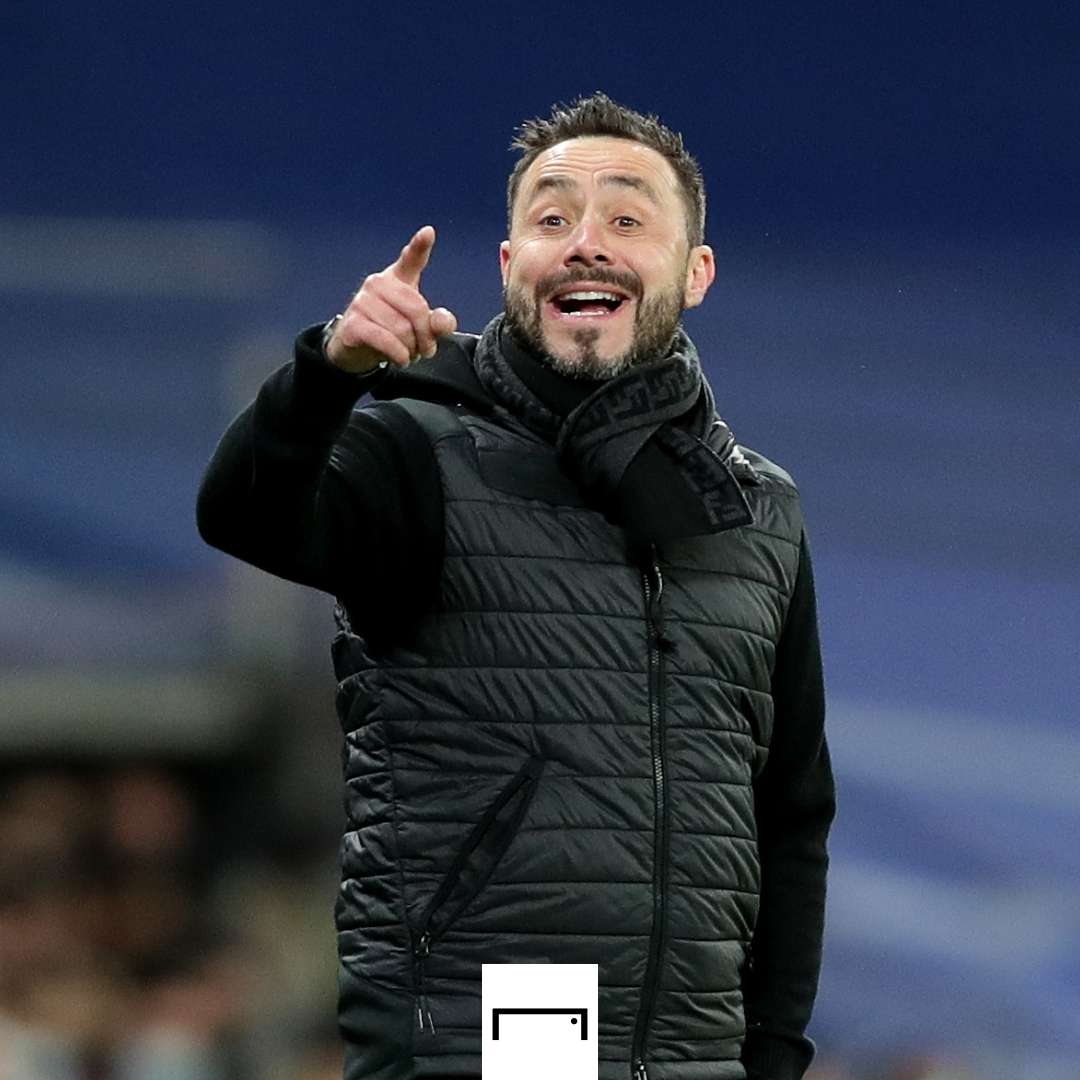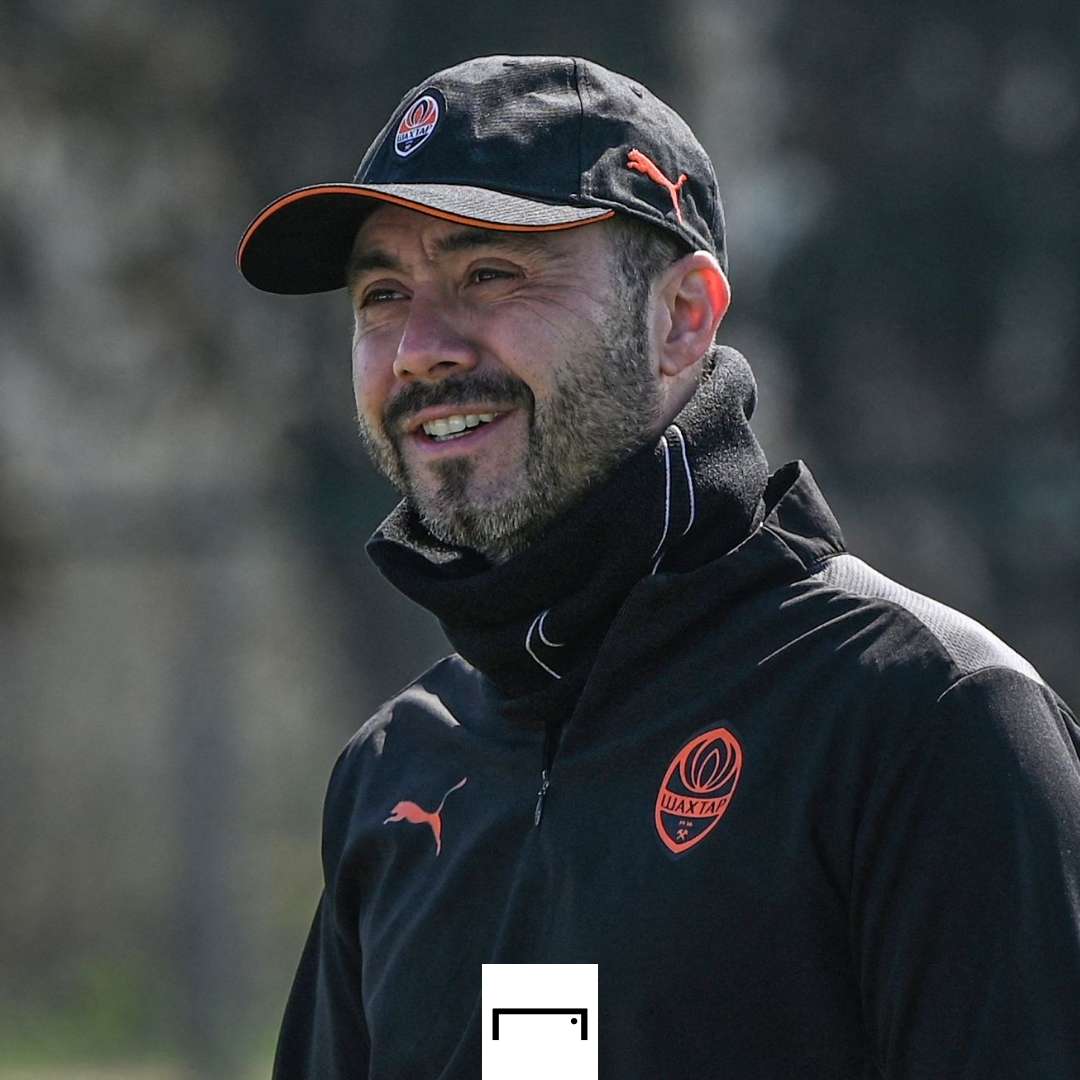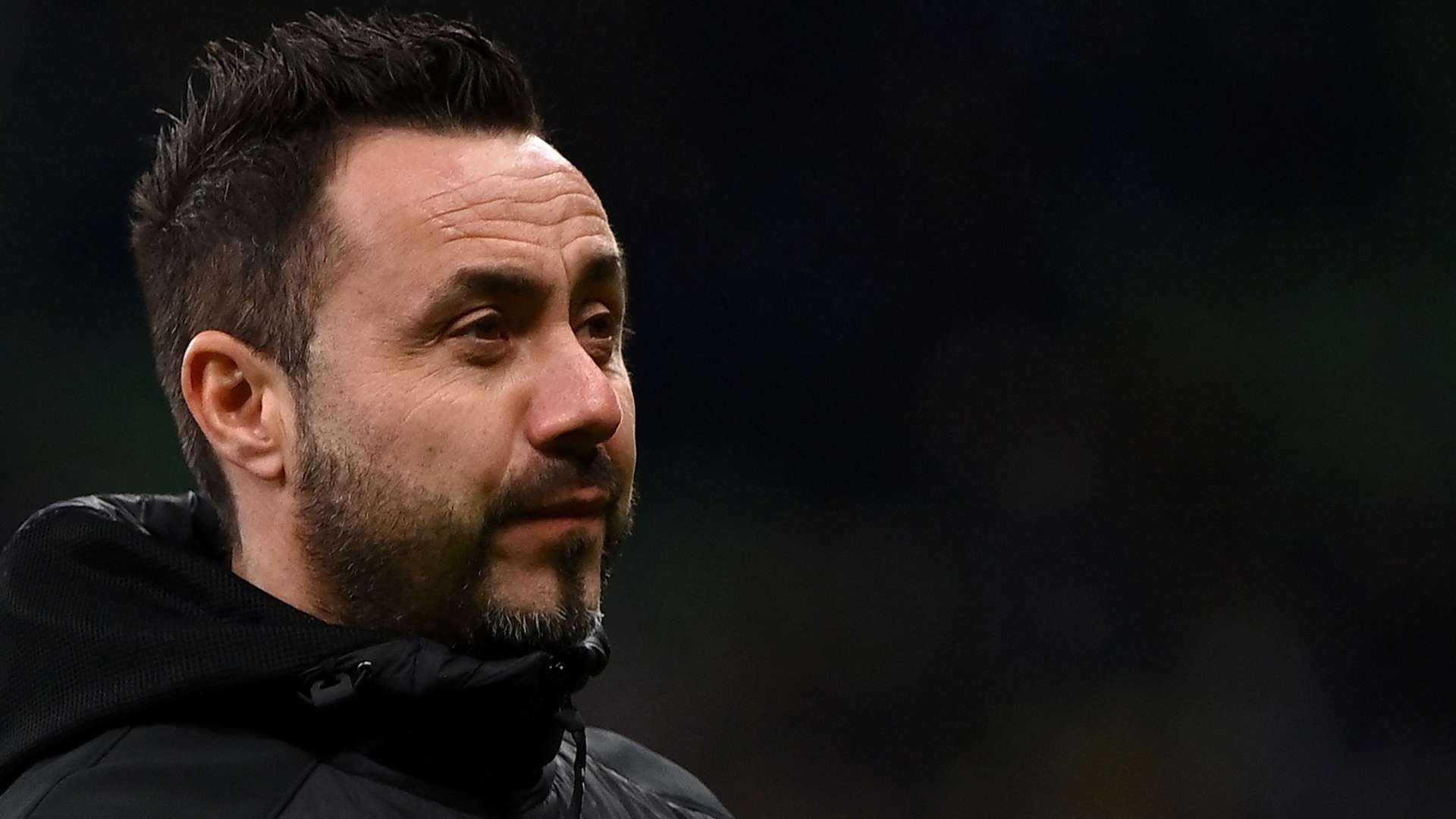Roberto De Zerbi had a very specific post-match ritual during his time in charge of Foggia.
Win, lose or draw, he would sit down the day after and re-watch the game, from the first minute to the last, making meticulous notes related to each and every single passage of play.
Such attention to detail may be common these days, but only at the very highest level. Foggia were in Serie C back in 2016.
De Zerbi's studious nature, and adventurous approach, were completely at odds with the low standard and traditional values of a league more renowned for its brutal physicality than its progressive tactics.
The common consensus was that a team had to kick – rather than play – its way out of Serie C.
De Zerbi's side, though, played proper football. They were excellent in possession, building from the back and always looking to attack.
Six years on, De Zerbi hasn't changed much. On the contrary, his subsequent coaching experiences, at Palermo, Benevento, Sassuolo and Shakhtar Donetsk, have only reinforced his belief in his footballing philosophy.
He has learned and matured, but remains utterly convinced that his way is the right way to play football. And now he gets to put his methodology to the test in the Premier League.
 Getty/GOAL
Getty/GOALHe was named Graham Potter's successor at Brighton just before the international break and will only take charge of his new team for the first time on Saturday, at Anfield.
And yet his appointment has already been questioned, most notably by Graeme Souness.
"I think it's a risk," the Liverpool legend told talkSPORT. "You're taking someone who doesn't know our game.
"If you look him up on Google, you'll notice that he's had seven jobs in nine years. If you're an exceptional coach, people want to hold on to you..."
The criticism will be of little concern to De Zerbi. He's always had to deal with sceptics.
As recently as a year ago, his philosophy was the subject of much debate in Italy.
He may have overachieved at provincial outfit Sassuolo, twice finishing eighth in Serie A while playing an attractive brand of football, but pundits questioned his side's defensive deficiencies.
Yes, Sassuolo were great going forward, but they were always suspect at the back. For example, in the 2020-21 campaign, Sassuolo scored 64 goals but conceded 56.
Perhaps that gung-ho approach is unsurprising, though, given his ties to Foggia, whom Zdenek Zeman took from the third division to Serie A back in the 1990s with his thrilling 4-3-3 formation.
De Zerbi, though, was also heavily influenced by Pep Guardiola, whom he visited during the Catalan's time in charge of Bayern Munich.
 Getty/GOAL
Getty/GOAL"It was a very interesting experience," the Italian told La Repubblica in 2015. "His Bayern and Barcelona sides are models that inspire me.
"But ever since my playing days, I have memorised concepts and made them my own. I have my own idea of football."
And he's continued to cultivate over the years, despite some negative experiences at Palermo and Benevento.
Vindication arrived at Sassuolo but the shame is that his subsequent spell at Shakhtar Donetsk was cut short by the outbreak of war in Ukraine.
Shakhtar were top of the league when play was suspended earlier this year.
By that stage, football had been rendered insignificant by the horror of the Russian invasion.
"The days were 24 hours long," he told Radio 105 of his final weeks in Ukraine, "but they passed very, very slowly, also because you couldn't sleep. At night, you could hear everything.
"There were those who slept in bunkers and those in their rooms. I slept in the room to understand what was happening outside the hotel, but when I heard an explosion, I went to the bunker."
After managing to get out of Ukraine, De Zerbi led Shakhtar on a 'Global Tour for Peace' before eventually parting company with the club in July.
A return to Serie A was anticipated but he has instead ended up in England.
 Getty/GOAL
Getty/GOALThe scrutiny has already started but don't expect him to change his ways, which should ensure entertainment on and off the field.
Indeed, De Zerbi is not afraid to speak his mind. When news of a European Super League broke last year, De Zerbi was enraged, labelling the breakaway league "a coup d'état".
He even initially refused to take to the field for Sassuolo's game against AC Milan, one of the founding members of the ESL, but was eventually obliged to do so.
De Zerbi's interviews could, thus, making for interesting viewing but the focus will undoubtedly be on how his side performs.
The sceptics are already circling but he looks a good fit for Brighton, who played fine football under Potter.
The transition certainly won't be seamless but De Zerbi's side will undoubtedly build from the back.
Indeed, whereas some see that as a perilous approach, he feels that to play any other way is far riskier.
"To me, launching the ball upfield and trying to win the second ball is the equivalent of gambling, and since I don't like to bet, I prefer to train a team to bring the ball carefully out of defence," he told Bobo TV.
De Zerbi, then, knows what he wants to do, and exactly how he wants to do it.
For that reason alone, the "risk" that Souness believes Brighton have made could end up paying off spectacularly.
